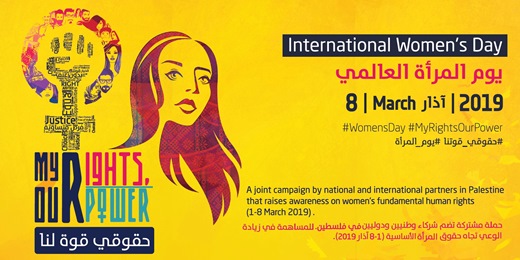"The conclusion of the UN Convention Against Corruption marks an important milestone, giving Transparency International and other civil society organisations a major instrument to use to push governments to live up to new international standards of integrity and good governance. The talks, which ended on 1 October, will be followed by a signing ceremony in Mexico in December, and the UN General Assembly will now be asked to make 9 December a new annual International Anti-Corruption Day.
This is an unprecedented breakthrough. The whole world now recognises that corruption impoverishes people all over the world. But we cannot and we must not drop our guard. It is essential that we now ensure that the objective of fostering justice and transparency to improve the lives of people all over the world is really met.
To implement these admirable goals, rich countries must provide practical support to developing country governments that demonstrate the political will to curb corruption. In addition, those countries starting with a high degree of corruption should not be penalised, since they are in the most urgent need of support.
President Mwai Kibaki of Kenya, who is meeting US President George Bush today, is the new leader of a country that has been devastated by corruption. He has made the fight against corruption a major priority, but the task is an enormous one. To turn Kenya into a country where corruption is not the order of the day requires sustained commitment at both the national and international level, both in terms of financial resources and practical support.
Transparency International's new Corruption Perceptions Index, released today, points to high levels of corruption in many rich countries as well as poorer ones, making it imperative that developed countries enforce international conventions to curb bribery by international companies, and that private businesses fulfil their obligations under the OECD Anti-Bribery Convention, namely to stop bribing public officials around the world.
Seven out of ten countries score less than 5 out of a clean score of 10 in the TI CPI 2003, which reflects perceived levels of corruption among politicians and public officials in 133 countries. Five out of ten developing countries score less than 3 out of 10, indicating a high level of corruption.
Corruption is perceived to be pervasive in Bangladesh, Nigeria, Haiti, Paraguay, Myanmar, Tajikistan, Georgia, Cameroon, Azerbaijan, Angola, Kenya, and Indonesia, countries with a score of less than 2 in the new index. Countries with a score of higher than 9, with very low levels of perceived corruption, are rich countries, namely Finland, Iceland, Denmark, New Zealand, Singapore and Sweden.
Some changes can be identified in the CPI. On the basis of data from sources that have been consistently used for the index, improvements since last year's index can be observed for Austria, Belgium, Colombia, France, Germany, Ireland, Malaysia, Norway, and Tunisia.
Noteworthy examples of a worsening are Argentina, Belarus, Chile, Canada, Israel, Luxembourg, Poland, USA, and Zimbabwe.
Nine out of ten developing countries score less than 5 against a clean score of 10 in the TI CPI 2003. Their governments must implement results-oriented programmes to fight corruption, but they also urgently require practical help tailored to the needs of their national anti-corruption strategies.
For these strategies to succeed, such support must go hand in hand with international backing for civil society to monitor the implementation of these strategies. In addition, donor countries and international financial institutions should take a firmer line, stopping financial support to corrupt governments and blacklisting international companies caught paying bribes abroad.
Western governments must also show they are serious about tackling their own companies that bribe abroad. The OECD Anti-Bribery Convention, which outlaws bribes to foreign public officials, came into force in 1999, but we are still awaiting prosecutions in the courts of the 35 signatory countries. The governments of these countries have an obligation to developing countries to investigate and prosecute the companies within their jurisdictions that are bribing. Their bribes and incentives to corrupt public officials and politicians are undermining the prospects of sustainable development in poorer countries.
It is time for the words to be turned into action to stamp out corruption, and this requires close co-operation between the developed and developing world. We can begin to close the rift between developing and rich countries, which was so evident at the WTO meeting in Cancún, Mexico, last month, if WTO negotiations are launched on a multilateral framework agreement on Transparency in Government Procurement (TGP). For less developed countries, it is in their own interests to introduce transparency measures in public procurement because the waste of their own scarce resources is at stake. If corruption in procurement is not contained, poverty will grow.
If corruption is allowed to flourish unchecked, more children will suffer from lack of clean water and lack of medicines, and will go to schools with no books. The time for excuses is long past. It is time for decisive action by governments and business alike."
For full details of the TI CPI 2003, visit http://www.transparency.org/cpi/index.html#cpi
Press Contacts for the CPI 2003
Berlin/Germany:
Sarah Tyler
Tel: +49-30-3438 2061/19
Fax: +49-30-3470 3912
Email: press@transparency.org
London/UK:
Jeff Lovitt/Susan Côté-Freeman
Tel: +44-207 610 1400
Statement by Peter Eigen, Chairman, Transparency International at the Foreign Press Association, London on 7 October 2003.




